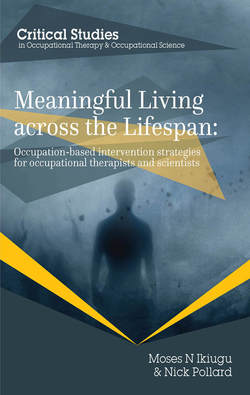Читать книгу Meaningful Living Across the Lifespan - Moses N. Ikiugu - Страница 19
На сайте Литреса книга снята с продажи.
Criticism of Frankl
ОглавлениеFrankl grew up in a comfortable Viennese Jewish family and had been educated as a doctor. Initially he was a follower of Freud’s psychoanalytic tradition, and later of Adler’s teachings. Even though he could have escaped the holocaust altogether, he found himself remaining in Nazi Austria to look after his parents at the beginning of the war. Pytell (2007, 2001, 2000) asserted that Frankl survived by co-operating with the Nazis in experimenting on the brains of Jewish suicide victims, activities in which his peers refused to engage. He was later confined in the concentration camps where he worked as a doctor. Pytell (2007) noted that it may be unreasonable to criticize Frankl’s actions in the hindsight of an historical perspective gained in times of peace, considering that these were the actions of a person trying to survive under extremely terrifying circumstances.
Nonetheless, the reader is cautioned to bear in mind that the personal story Frankl frequently told could be selective and misleading, although as it remains without doubt the story of a holocaust survivor, it contains meaning and truth. Pytell (2000) suggests that Frankl’s work likely dramatizes his survival, representing his own rather than ‘Man’s’ cry (Frankl, 1992) for meaning, an unheard cry at that (Frankl, 1978). None the less, Frankl’s (2000, 1978, 1969) writings gained wide acceptance over time, especially his observation that the contemporary society was sick due to the loss of meaning in people’s lives. He referred to this condition of meaninglessness as noogenic neurosis. He described it as an existential vacuum resulting from a loss of touch with the natural environment; loss of grounding in traditions, religious practices, and philosophy; and the lack of a self-transcendent connection to something larger than ourselves. Symptoms of the malady were boredom and meaninglessness which were expressed through aggression, addiction, depression and suicide (Frankl 1992, 1969).
In this book, we use Frankl’s notion that human beings are primarily motivated by a search for meaning in life. We agree that a lack of meaning in life can plunge one into a sense of emptiness (Frankl’s ‘existential vacuum’) and subsequently into a lack of a sense of well-being. This lack can in turn lead to self-destructive behaviors such as addictions and even suicide. However, rather than subscribe to Frankl’s pathologization of meaninglessness as a disease, we prefer to follow Maslow’s (1970) suggestion that the search for meaning is actually a search for personal growth. We then propose that occupational therapists and scientists can help people realize this search for growth and ultimately for meaning in life by enabling them to carefully select occupations in which they participate every day of their lives.
